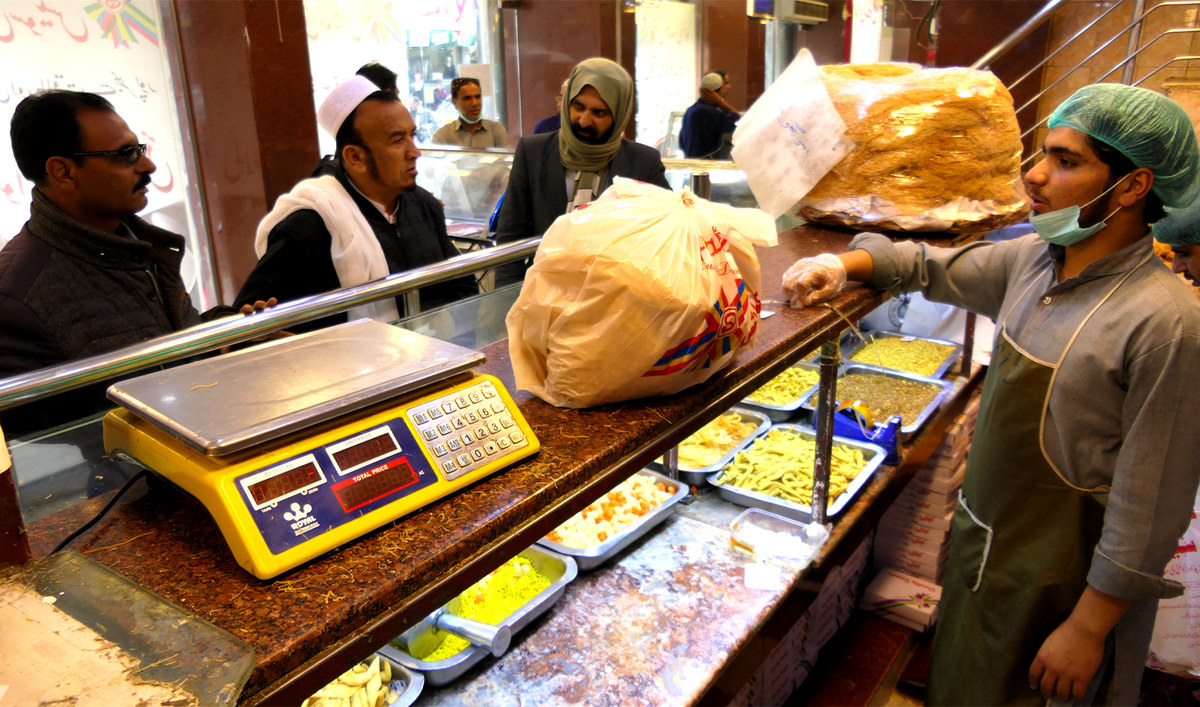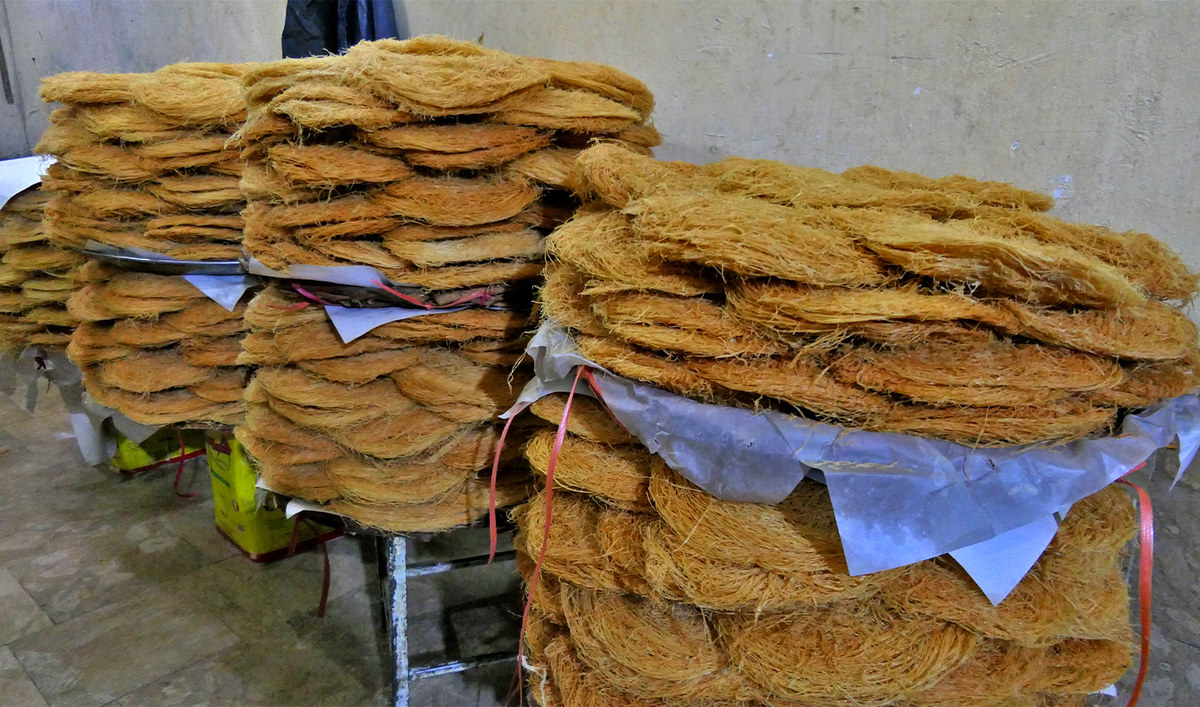QUETTA: After offering afternoon prayers, 54-year-old Muhammad Aziz starts displaying buckets filled with round bunches of fried vermicelli, called “pheni,” to attract customers to a local sweet shop in the southwestern Pakistani city of Quetta. Aziz, who works as a manager at the sweet shop, says the demand for the staple food item “increases” in southwest Pakistan during the holy month of Ramadan.
In southwestern Pakistan, pheni is a Ramadan delight as people love to consume the light food item in their pre-dawn sehri meals. Vermicelli enthusiasts often consume it with hot milk and tea, which helps them avoid heavier meals during suhoor.
“The demand for pheni increases in Ramadan because customers eat it with hot milk in their suhoor,” Aziz, 54, told Arab News on Saturday. “In Ramadan, we sell almost five to six buckets a day and each bucket contains 15-20 kilogram of pheni.”

People buy vermicelli at a local sweet shop in the southwestern Pakistani city of Quetta on March 26, 2023. (AN photo)
Mumtaz Ali, 43, has been making vermicelli for the last 20 years at Quality Sweets, a famous sweet shop in Quetta. Ali says his team, which comprises 12 members, works for 15 hours a day during Ramadan to prepare six sacks of vermicelli.
Each sack weighs 85kg.
“In Ramadan we hire extra labor who work in the vermicelli section for a month but we stop making pheni after the 23rd of Ramadan,” Ali told Arab News, adding that the focus then shifts toward confectionary items for Eid.

The picture taken on March 26, 2023, shows stacks of fried vermicelli at a local sweet shop in the southwestern Pakistani city of Quetta (AN photo)
Explaining how the snack is prepared, Ali says “high quality” of flour is used to make vermicelli, which his workers knead with their hands and through machines. Next, it is mixed with water and salt.
“Then we apply ghee to it and later we stretch the dough and make them into dough balls,” he said. “We then bring it here [to the kitchen] and fry it here to bring it into this position.”
With inflation soaring to a decades-high in the country, bakery owners in Balochistan have also increased the price of pheni this Ramadan season. A kilogram of the round, slender threads has risen to Rs650 ($2.30) from Rs500 ($1.74) last year.
“Inflation increases day-by-day, previously it increased in a year but now prices jump within a week,” Muhammad Javed Butt, who owns a bakery in Quetta, told Arab News.
“Flour and oil prices have increased which is why we have to slightly up the [pheni’s] rate to maintain its quality.”
But it nonetheless remains a part of people’s pre-dawn meals in Balochistan, he added.
Khalid Hussain, 65, who buys pheni for his family every Ramadan, said they have it in sehr and iftar with milk.
“Children love it a lot, they mix it with milk and really enjoy it,” he told Arab News.
Hussain said there may be many baked items for Ramadan but pheni is the “most eatable” one.





















